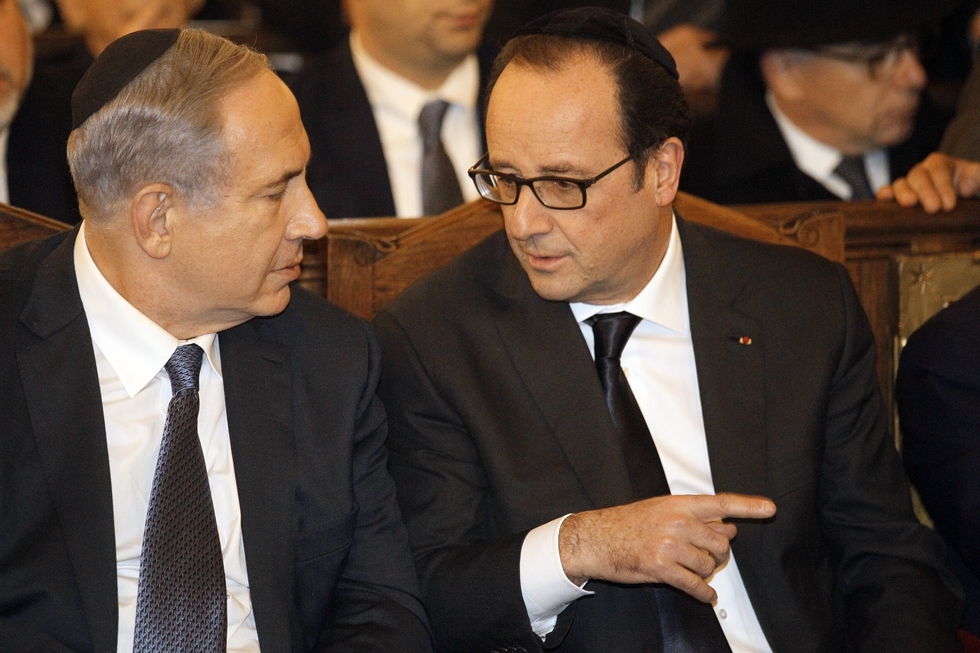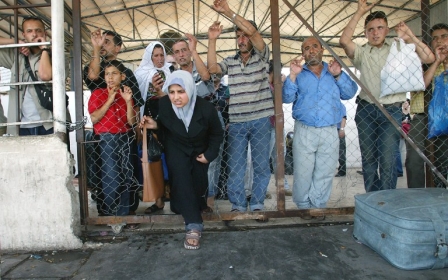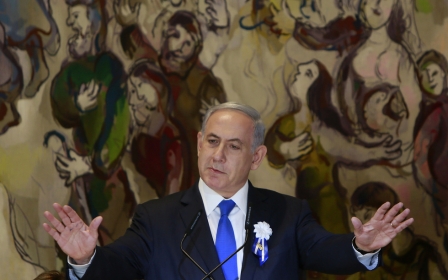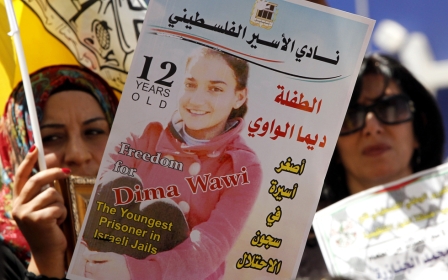French plan to hold Israel-Palestine conference postponed indefinitely
France said they put off the conference planned for end of May because US Secretary of State John Kerry could not make it

Israel's Prime Minister Benjamin Netanyahu and French President Francois Hollande (AFP)
Published date: Mardi 17 mai 2016 - 08:46
|
Last update: 8 années 6 mois ago
A conference on the peace process between Israelis and Palestinians, due to be held on 30 May in Paris, has been postponed, French President Francois Hollande said on Tuesday.
"[US Secretary of State] John Kerry cannot come on May 30 so it has been delayed. It will take place in the summer," he told French radio.
Hollande said it was vital for France to take "a strong initiative" in the dispute.
"If not... what will happen? Settlement building, attacks," he said.
The original date for the conference falls on the US Memorial Day holiday honouring members of the armed forces who died in combat.
"We're in discussions right now with the French about any possible alternative date that might better work for the secretary," State Department spokesman John Kirby said Monday, though he added that Kerry's agenda is currently "jammed".
French Foreign Minister Jean-Marc Ayrault was in Jerusalem and Ramallah on Sunday to present the French peace initiative to Israeli Prime Minister Benjamin Netanyahu and Palestinian president Mahmoud Abbas.
Ayrault received support from the Palestinians but objections from Israel, with Netanyahu questioning French "impartiality" after Paris voted in favour of making Palestine a UNESCO member five years ago.
"We are going to work with all the actors, the big countries and neighbouring nations, to create the parameters that will allow the Israelis and Palestinians to return to the negotiating table," Hollande said Tuesday.
A staunch ally of Israel, Washington has traditionally brokered direct negotiations between the Israelis and Palestinians and played down multilateral initiatives, especially within the United Nations.
The United States has regularly called for a "two-state solution" to the conflict since the last US-brokered talks collapsed in April 2014.
Middle East Eye propose une couverture et une analyse indépendantes et incomparables du Moyen-Orient, de l’Afrique du Nord et d’autres régions du monde. Pour en savoir plus sur la reprise de ce contenu et les frais qui s’appliquent, veuillez remplir ce formulaire [en anglais]. Pour en savoir plus sur MEE, cliquez ici [en anglais].




